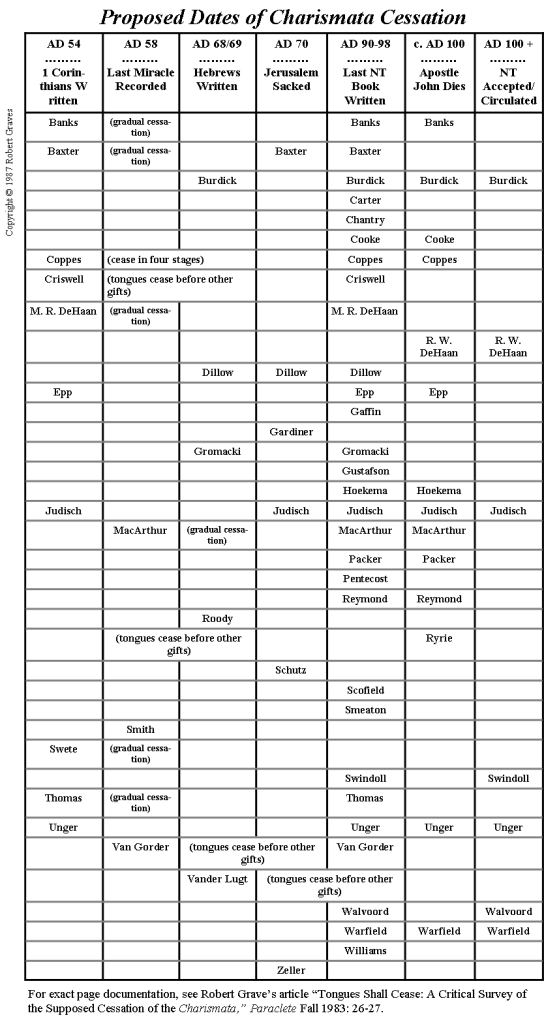Praying in the Spirit: That Glorious Day When Tongues are Not Needed: Until Then … Part 1
The first important modern theologian to give detailed consideration to the cessation of the gifts was B. B. Warfield (1851-1921). Warfield lists four different factors, either proposed or endorsed by him, which he contends were to affect or coincide with the cessation of the charismata:
- When the Apostolic Age passed (p.6).
- When the last disciple to whom the apostles conferred a gift died (p. 23-24).
- When the whole knowledge of God designed for the saving health of the world had been incorporated into the living body of the world’s thought (p. 26).
- When the revelation of God in Christ had taken place and had become in Scripture and the Church a constituent part of the cosmos (p. 27).
No specific date can be pinpointed from these factors.
Douglas Judisch, writing some sixty years after Warfield, gives five factors or dates for the cessation of tongues:
- In AD 70 with the destruction of the temple (p. 43).
- With the death of John, the last apostle (p. 49).
- Shortly after John’s death (p. 63).
- When the apostles’ last charismatic disciple died (p. 76), and
- When the Christian matured in the faith; for Paul it was prior to his writing of 1 Corinthians in (AD 54) (p.83).
Thus Judisch suggests five different dates for the end of tongues that range from AD 54 to some time in the second century. He suggests that in these five dates are two kinds of cessation, the cessation of distribution, and the cessation of operation, but does not define one specific cessation point.
No doubt miracles occurred under Paul’s ministry, but he does not consider them important signs of apostleship or limited only to apostles.

Category: Spirit, Spring 2000


